by Jenna | Sep 17, 2014 | Writing Articles
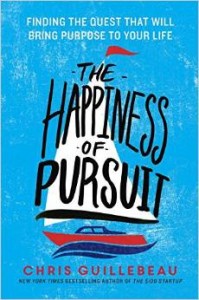 This week I'm reading Chris Guillebeau's freshly published book: The Happiness of Pursuit: Finding the Quest that Will Bring Purpose to Your Life.
This week I'm reading Chris Guillebeau's freshly published book: The Happiness of Pursuit: Finding the Quest that Will Bring Purpose to Your Life.
I've been a longtime follower of Chris's blog, The Art of Non-Conformity.
What I love about Chris's approach to Life, the Universe, and Everything is his go-get-it attitude about the things that matter to him. He's designed a life and completed a quest that works for him and his personality. This new book is about his quest to visit all the countries in the world by the time he was 35, and about the many people he met along the way that were pursuing quests of their own.
In talking with others and looking at his own experience, Chris gleaned a number of useful lessons and insights about creating and pursuing quests.
And although the focus of the book is generally on more external pursuits, I can't help thinking there's are great lessons to be learned for our writing lives as well. There are certainly some useful parallels to draw between quests and writing, as you'll see below.
Let's talk about some of the lessons that have stood out to me so far in what I'm reading:
1. "When you sense discontent, pay attention." Discontent is a powerful informant about what's not working in your life . . . but it's not enough on its own to spark a quest or change. Chris says, "If you want to get the embers burning, you have to blend dissatisfaction with inspiration, and then you have to connect the dissatisfaction to a greater purpose."
This is his equation for transmuting dissatisfaction:
Dissatisfaction + Big Idea + Willingness to Take Action = New Adventure
I've definitely found discontent to be a great source of information in my own life about what's not working and what I'd like to change, but it was my willingness to do something about it that really made the difference, particularly in my major career shift from urban design to coaching and ultimately to writing.
2. "A true calling involves trade-offs." A dream that calls you -- whether it's creating something or traveling the world -- will require a deeper investment or even sacrifice -- but it will feel worth it to you because you're called to do it.
Making the time to write often involves a sacrifice or trade off for me, but almost always feels worth it. And I'm certainly willing to make hard choices about fulfilling other dreams of mine in order to make them happen (from staying home with the kids to traveling the world).
3. Refuse to give your fear decision-making authority. Making headway into new territory will trigger fear. As Chris says, "Embracing new things often requires us to embrace our fears, however trivial they may seem. You deal with fear not by pretending it doesn't exist, but by refusing to give it decision-making authority."
Any big dream will trigger fear -- and Chris is absolutely right that we cannot allow it to dictate our decisions.
4. Have an emotional awareness of mortality. Chris differentiates between an intellectual awareness of mortality versus an emotional one.
Here's how he breaks it down:
- Intellectual awareness: "I know that no one lives forever."
- Emotional awareness: "I know that I will someday die."
I've always been vaguely annoyed by the notion to "live each day as if it's your last", because I'm pretty sure I wouldn't be emptying the dishwasher if it was my last day on Earth. But Chris's notion here, of having an emotional awareness, points to something more meaningful for me.
It's about having a sense of personal motivation to make the most of the time we are individually given, by adopting greater goals and pursuits that bring a sense of meaning and fulfillment into our lives. That version works for me.
5. Make your personal passions your quest. A quest, as Chris defines it, includes a clear goal, a real challenge, and set of milestones along the way, and something that involves some kind of investment or sacrifice. He doesn't include writing a book as a quest, though he defines that as a "general life improvement" along with other things like getting out of debt, getting in shape, quitting smoking. Those, he says, are not necessarily true quests.
The examples of quests given in the book range from his own (traveling to all the world's countries), a woman's goal of making a meal from every country for her family, a teen earning every Boy Scout merit badge, and a man using walking as an only means of transportation for 17 years (and not speaking either for that length of time as well).
More to come...
The rest of the book contains what looks like more delightful examples of other people's quests, along with some in depth chapters I'm particularly looking forward to reading.
There's one called "The Love of the Craft", which I think will be right up my alley, with some writing examples, including Seth Godin.
Can writing be a quest?
It occurs to me that writing could still be a quest by Chris's definition -- perhaps by setting a goal of some kind around it, like a certain number of books or screenplays written by a certain date, or like Seth Godin, writing 365 days per year. What do you think? Take a look below for an opportunity to submit your answer about how writing might look like a quest for you . . . and get a chance to win a copy of Chris's book!
About Chris
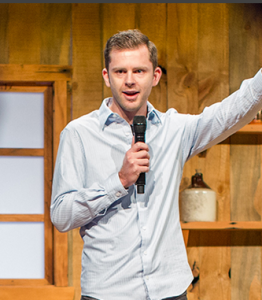 During a lifetime of self-employment that included a four-year commitment as a volunteer executive in West Africa, Chris visited every country in the world (193 in total) before his 35th birthday. Since then he has modeled the proven definition of an entrepreneur: “Someone who will work 24 hours a day for themselves to avoid working one hour a day for someone else.”
During a lifetime of self-employment that included a four-year commitment as a volunteer executive in West Africa, Chris visited every country in the world (193 in total) before his 35th birthday. Since then he has modeled the proven definition of an entrepreneur: “Someone who will work 24 hours a day for themselves to avoid working one hour a day for someone else.”
Chris’s first book, The Art of Non-Conformity, was translated into more than twenty languages. His second book, The $100 Startup, was a New York Times and Wall Street Journal bestseller, selling more than 300,000 copies worldwide. His latest book, The Happiness of Pursuit, will be published by Crown / Random House in September 2014.
Every summer in Portland, Oregon, Chris hosts the World Domination Summit, a gathering of creative, remarkable people with thousands in attendance. Chris is also the founder of Pioneer Nation, Unconventional Guides, the Travel Hacking Cartel, and numerous other projects.
Read Chris's favorite writing tips here: http://chrisguillebeau.com/good-writing-tips
Meet Chris
You can meet Chris on his tour of 40+ cities in North America. Find out more here: http://chrisguillebeau.com/events
Win a Copy of The Happiness of Pursuit
Pick up your own copy of The Happiness of Pursuit, on Amazon *, Barnes & Noble, and indie bookstores in hardback, paperback, or ebook form.
Thanks for reading!
* Affiliate link

by Jenna | Sep 10, 2014 | Writing Articles
Ugh. Procrastination.
We're all familiar with that simultaneous desire to write and the repulsion from writing that leads us into the nether realm of procrastination. We're doing something else -- ANYTHING else -- and it can range from feeling like we're doing something vitally important to just plain old digging our heels in and resisting.
Sometimes we tell ourselves we need to "warm up" first before we can write, with a little email, Facebook, or even a treat of some kind.
Or we decide we simply cannot tolerate the state of our physical space for a single minute longer -- how many offices, bathrooms, and kitchens have seen the plus side of procrastination on a day when writing feels oh-so-hard to do?
Other things come up too, right? All those urgent deadlines, other people's problems, our kids' needs, that bit of online research you just can't wait to do (you know, that one that snowballs into two hours of online nothingness -- and yes, I speak from experience), or even bigger things, like that college degree you suddenly have to have.
Understanding procrastination
There are a few of key things to understand about procrastination:
1. It's (usually) driven by fear. There's some kind of fear coming up that's stopping you from writing. You may not be clear on what it is, but trust me, it's there. Fears of success, failure, commitment, overwhelm, rejection, praise, inability to deliver, etc. are most likely to come up. (When it's not fear-driven, there's usually something significant going on, like healing from a traumatic creative wound or recovering from creative burnout, but I would call that a block, a subject for a future post.)
2. Not taking action on your writing will keep you in a low grade state of anxiety, guilt, and shame. I say "low" but it can skyrocket into a full-on painful squirming-in-shame. So even if you're pretending you are just watching your favorite TV show for a little treat before you get started and that it will help you relax into writing -- check in with yourself -- are you really, truly, in your heart-of-heart's feeling relaxed? Or are you twitching with unrest and discomfort inside?
3. It's a lot easier to fix than you think it is. There are some days when it simply isn't possible to sit down and power through tons of writing. That's okay. There are days when you can't face your draft. That's okay. But you CAN write, even if it's just for a few minutes.
And ultimately, making small moves will help you beat procrastination in the big picture.
Beating procrastination
Here are seven ways you can beat procrastination and get back in the writing saddle:
1. Have a short but honest talk with yourself about what's really going on. This doesn't have to be a big deal. But it's worth acknowledging in the privacy of your own mind, "Yes, I'm procrastinating, and it feels crummy. I'm going to do something about it."
2. Tell someone what you're doing. Find an accountability partner, a writing buddy, or a writing group that will help you commit to doing the writing and seeing it through. It helps tremendously to say to another person (even if it's your spouse or best friend!), "I'm going to write today no matter what."
3. Make a deal with yourself to write ANYTHING for 15 minutes. I don't care if you write morning pages, a list of all the reasons you hate writing, or actually work on your current writing project. Just get out a piece of paper or open your Scrivener file or Word document (I'm a Pages girl myself), and put words on the page, even if they are crap. (Using a timer for your 15 minutes is a special bonus tip - it's like pressing the "GO" button. Try it!)
4. If 15 minutes feels like too much, make it smaller. The goal should be small enough that you find yourself saying, "Well, heck, I can at least do THAT much." So if 15 minutes sounds daunting, do five. Or write ONE sentence (I'm not kidding). The key here is to get yourself into action WRITING. Period.
5. If you've racked up a lot of frequent procrastinator miles, STOP when you meet your goal. There are a LOT of writers I talk to who commit to write for 15 minutes, do it, and then find it so easy they keep on going. That's great, if you're just jump-starting yourself after a day or two away. But if you've been in the writing desert and the words have been few and far between, when you meet your writing goal for the day, stop and celebrate. Don't break trust with yourself and keep on writing -- you'll only set yourself up for a bigger challenge tomorrow when you feel like you have to "do better" and suddenly have too daunting a goal to face.
6. Reward yourself for writing. One of my favorite writers, writer-director Joss Whedon (Firefly, Buffy, The Avengers), rewards himself just for having an idea. Don't be stingy here. Writing each day is the equivalent of beating back the forces of darkness. You deserve to whoop it up a little once you pull it off. Give yourself a piece of chocolate, a stretch in the sunshine, or even those things you'd normally be procrastinating with. Remember the email, Facebook, and favorite TV shows? Make those your cool downs instead of your warm ups and you'll be good to go.
7. Do it again tomorrow! You've beaten procrastination today, great work!! Now, when you wake up tomorrow, use these tools to make a shorter path to writing. It'll feel great. Then once you get on a roll, start building up to more over time.
Warmly,

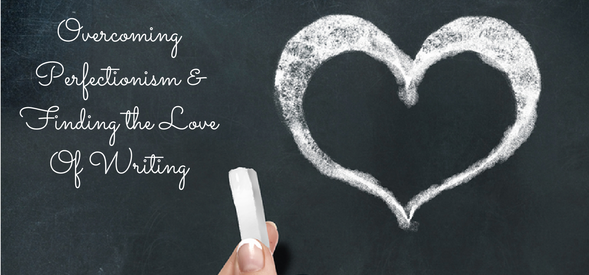
by Jenna | Aug 13, 2014 | Guest Posts
 Note from Jenna: This guest post from one of the fabulous writers in my community members: Sonya Sigler. In this article Sonya talks how she’s set herself up for ongoing success with her writing, despite her “love-hate” relationship with it (which so many of us have!).
Note from Jenna: This guest post from one of the fabulous writers in my community members: Sonya Sigler. In this article Sonya talks how she’s set herself up for ongoing success with her writing, despite her “love-hate” relationship with it (which so many of us have!).
Enjoy.
My Love-Hate Relationship with Writing
Putting good habits in place to find more of the love
by Sonya Sigler
I love, love, love the finished product from writing. I love hitting the publish button once I’ve written a blog post. I love submitting an article and hitting the send button before the deadline. I love seeing my work in print. I love to journal, for me and each of my kids (how else would I remember what they do on a daily basis?). Most of all, I love sharing knowledge and ideas with others through the written medium.
The big “but”
But, and this is a big but, I hate sitting down to write. Once I sit down to write, I apparently must send a big sign out to the universe to let the hemming and hawing begin, because once I sit down, the negative chorus in my head starts in, saying, “Why did you agree to do this?”
If I am at home, instead of writing, I’ll do the dishes and clean the kitchen. Or start a load of laundry. Or sweep and vacuum. If I’m at work, I clean my office, file things, or make phone calls. I check my email, I go on Facebook or LinkedIn to see what others are up to. I make a cup of tea, I look for food to eat (carbs, mostly, of course). I do ANYTHING but sit down and write!
In short, instead of sitting down to write, I procrastinate.
Why? Why do I procrastinate?
I procrastinate because I am letting perfect be the enemy of the good. I procrastinate because I want the entire article to be written in my head before I start. I procrastinate because I want my writing to convey the awesome ideas I have in my head – just as they appear in my head – elegant and articulate.
I procrastinate because I want my writing to be perfect.
Writing is a habit
What I’ve learned in the writing community is that writing is a habit, and putting a good habit in place is the key to my writing success.
I’ve also learned that the writing habit is a constant and consistent process. I write a little every day. I have tons of ideas, so that isn’t the issue. For me, the issue is writing every day, consistently, for any amount of time. I now aim to write for five minutes a day.
I can hear you thinking now: “Five minutes, is that all?”
Yep, for me, that is the threshold of a set goal I can absolutely meet.
It’s also the amount time that motivates me to sit down and write. A target of 15 minutes of writing time was too high; I would blow it off, even though it was on my calendar. I would ignore it. I would say to myself, “Oh, you can write later this afternoon when you have more time.”
Really?
No.
That wasn’t working for me.
To achieve the success with my writing I wanted, I had to set a small goal that I could consistently meet, every day. For me, five minutes was it. Five minutes was a writing routine that I could do consistently, no matter what.
Other tricks for writing success
In order to make it as easy as possible to meet my five minute daily goal, I use other tricks to make writing happen, like:
- Bringing my writing with me. I take a journal with me when I pick up the kids and find that I have to wait.
- Sitting down first thing in the morning after exercising to write for five minutes. I jot down ideas. I write one word, one sentence, or one paragraph at a time.
- Keeping drafts in Evernote I can access from any device. I bring my iPad or iPad Mini with me so that I can write when I have five minutes.
Letting go of preconceived notions
I also found that for this new habit to sink in and stick that I had to let go of a few preconceived notions about writing, like the idea of perfect writing conditions. I had in my mind the perfect writing condition being a long stretch of time (read, at least 8 hours), that is quiet with no distractions or interruptions.
Yeah, right. When has that ever happened?
Never.
I also had to let go of the notion of “proper” writing. I’m an attorney. I do a lot of legal writing, a lot of writing for lawyers. I’ve had to let go of the idea that I am writing a formal or “proper” law review-like article with extensive footnotes and case citations. To let go of the notion of proper writing I’ve learned to keep my audience in mind so I can write in the voice for that particular audience, whether it is lawyers, technologists, moms, or entrepreneurs.
Lessening perfection to find the love
Changing my writing habit required a mind-shift – letting go of the notion that perfect writing conditions exist and letting go of the notion of always having to do “proper” writing. Changing my writing habit also required me to put a few things in place to make writing easy to say “Yes” to each day.
Now, I believe I can write whether I sit down for five minutes at a time or for an hour, and whether I sit down to write one word at a time or one sentence at a time. Sometimes the words all flow out at once, sometimes the writing is painstakingly done one word at a time.
In any case, eventually, it gets done. This awareness and shift in thinking helped lessen the grip of “perfection” on me and allows me to spend more time on the “love” side of writing!

Sonya Sigler is an executive coach, consulting in operations, legal, and business development with start-ups and other high-growth companies. She is a staunch advocate for women in technology and is focused on sharing practical advice. You can find her online at http://www.sonyasigler.com, view her LinkedIn profile, or follow her on Twitter @sonyasigler

by Jenna | Aug 7, 2014 | Guest Posts
 Note from Jenna: This guest post is from Terri Fedonczak, a parenting coach, author, and writing community coach.
Note from Jenna: This guest post is from Terri Fedonczak, a parenting coach, author, and writing community coach.
I’ve loved working with Terri through the writing community over the last few years, first as a participant, then as a coach. She knocked our socks off by finishing the first draft of her parenting book in just three 28-day sessions of the writing community in 15 minute increments of time – after having had the book “brewing” in her for over 15 years. Amazing!
Just Show Up
by Terri Fedonczak
When I joined the writing community in 2012, I knew that I wanted to finally get my book out of my head and into my computer. I had been “writing” this parenting book for 15 years, as I knew that I needed to get one kid through adolescence before I could have any street cred with other parents. I put writing in quotations, because the book was mostly on tape. The little bit of writing that I did have was on sticky notes and spread across a dozen journals.
In my first session with the community, I thought I would just get organized. My goals were very small: only 15 minutes a day 6 to 7 days a week. Much to my surprise, I finished the rough draft in just three sessions. “Rough” is an understatement as a descriptor for that first draft. It was a 30-page booklet of disjointed ideas. I told myself that I wanted to keep it short, because parents were too busy to read a long book. That was a nice justification for keeping the real story to myself.
When I sent my booklet to my chosen editor, she immediately outed me. She said, “I will edit this book the way it is, but it wants to be so much more. There’s no heart and soul in it. YOU aren’t in your book. There’s nothing about your breast cancer, no struggle, no life coaching journey . . . there’s no mess here. Parenting is messy. You need to show other parents your mess.” She was right. And that started an 18 month journey of re-writes and edits.
Let Go of Expectations
One thing I’ve learned in the writing community is that writing is both infinitely easier and more challenging than I ever expected. It’s more helpful if you flush your expectations of how long it will take or who will like it and just keep showing up to the page every day.
As a coach, I see brilliant writers spending lots of time and energy worrying about what other people will think of their writing, or fretting about how long it will take (or is taking). All this worry keeps us in ours heads. Good writing doesn’t come from the head – it comes from the heart. Meaningful writing grabs the reader with its simplicity and elegance and just won’t let go.
As readers, we don’t care about how long the writing took or how smart the author is, we want to care about what we’re reading. You can’t fake that or wordsmith your way around it. All you can do is show up to the page and show us your mess.
From Dream to Reality
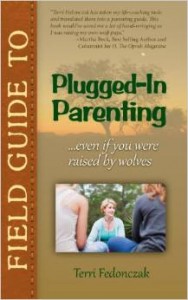 My book went from a dream to a reality. It’s now on Amazon* online, and it was endorsed by the Washington Post as a “must read” in their February Parenting Book Round Up.
My book went from a dream to a reality. It’s now on Amazon* online, and it was endorsed by the Washington Post as a “must read” in their February Parenting Book Round Up.
But more importantly, I have parents tell me how much the book has changed their parenting for the better. That makes it all worthwhile.
This Is What Success Looks Like
So, 15 years of vomiting ideas onto paper or tape, one month to a rough draft, and 18 months to re-write and publish. This is what success looks like; it’s not quick and it’s not easy. But with the support of other writers, a dogged determination to show up to the page every day, even just for 5 minutes, and the courage to show us your mess, you will arrive at your own version of success.

 Terri Fedonczak wants to live in a world where girls recognize their own power and choose to use it for good. On a trip to South Africa, Terri saw the power of the lioness and how they support their pride; it was a lightning bolt of realization that her mission is to bring the power of the pride to girls and their parents. Terri was a commercial real estate agent for 16 years until a bout with breast cancer transformed her life in 2010. She realized that trading money and status for time with her four girls and patient husband was not quite the deal she thought it once was. She left sales to become a certified life coach and embark upon a journey of spreading the message of girl power far and wide.
Terri Fedonczak wants to live in a world where girls recognize their own power and choose to use it for good. On a trip to South Africa, Terri saw the power of the lioness and how they support their pride; it was a lightning bolt of realization that her mission is to bring the power of the pride to girls and their parents. Terri was a commercial real estate agent for 16 years until a bout with breast cancer transformed her life in 2010. She realized that trading money and status for time with her four girls and patient husband was not quite the deal she thought it once was. She left sales to become a certified life coach and embark upon a journey of spreading the message of girl power far and wide.
Terri is a featured speaker at the Costa Leadership Institute, helping adults balance their lives, and she takes the girl power message into high schools, talking to 9th grade girls about how to thrive in high school. Her first book, Field Guide to Plugged-in Parenting, Even If You Were Raised by Wolves, debuted in 2013. When she’s not speaking, coaching or blogging, you can find her paddle boarding on the sparkling waters of Boggy Bayou, knitting to the consternation of her children, who are buried in scarves and hats, or dancing in her kitchen to Motown.
You can discover your own inner lioness and feel the power of the pride at www.girlpowerforgood.com.
* Affiliate link
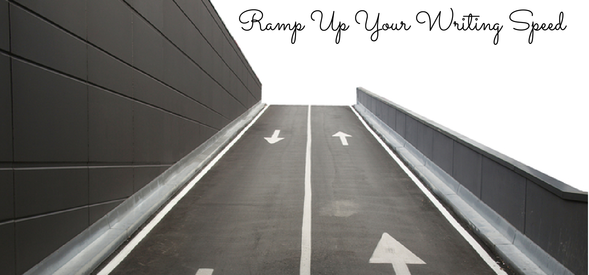
by Jenna | Jul 30, 2014 | Writing Articles
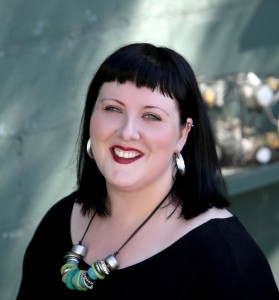 Note from Jenna: This guest post is from one of my screenwriting pals and a talented journalist, Nicola Pittam. I’ve come to know Nicola through my screenwriting training programs and love her clever wit and ability to churn out the writing at a moment’s notice (I’m pretty sure she wrote this post on the fly in under 20 minutes!).
Note from Jenna: This guest post is from one of my screenwriting pals and a talented journalist, Nicola Pittam. I’ve come to know Nicola through my screenwriting training programs and love her clever wit and ability to churn out the writing at a moment’s notice (I’m pretty sure she wrote this post on the fly in under 20 minutes!).
Nicola’s piece addresses not only HOW to write, but how to write more quickly. Take a look and see what you might glean from her experience for yourself. (And enjoy her British spelling!)
Ramp up your writing speed
by Nicola Pittam
When asked: “How do you write?” I invariably answer: “One word at a time.” (Stephen King)
That’s one of my favourite quotes about writing, from one of my favourite authors. You’d be surprised how many times a writer gets asked that same question over and over again. And while Mr. King’s answer might simply seem like common sense, it’s also completely true!
There is only one way to write – one word at a time, one word after another.
But sometimes it’s difficult to get that first word – or even 1000th word – down on the page, especially if you are on a deadline.
I’ve been a journalist for nearly 25 years and so I’m used to deadlines. In fact, I’ve become so used to it, I work better and quicker if I have a deadline looming in front of me.
But just like everyone else I procrastinate when it’s time to write. I’ll watch bad day time TV, make endless cups of tea, call family and friends to chat – anything but sit down in front of the computer. But if there’s a deadline and I know I have to deliver by a certain time, my brain kicks in and off I go.
I was working for Rupert Murdoch’s Sun newspaper in the UK at the age of 21, so I had to learn fast. If a breaking news story came into the newsroom at 6pm, it had to be written, subbed and in the paper by 6.30pm as the presses started to roll at 7pm for the next day’s paper. And if you couldn’t do that, you were out the door. So I learnt very early on to write fast and be precise. To this day I can write a breaking news story in 15 minutes, or churn out a 4,000 word magazine feature in under two hours.
For me it’s all about discipline and I was lucky enough to learn that on a job that I loved but that required it.
But what do you do when you don’t have that discipline? Or you’re not used to writing that fast but have all these ideas that want to come tumbling out?
I admit there are times I still have problems writing a script because at the end of the day I’m the only one accountable for it – there’s no editor waiting on the end of the phone to yell at me (or even fire me), if it’s not delivered on time.
So here are some ways I get around this:
- Set deadlines for yourself. They don’t have to big deadlines. Even little deadlines can help. Instead of thinking: “I HAVE to write 20 pages today”, set yourself smaller goals. You’re more likely to hit a deadline of 5 pages a day than 20. Then if you do more than 5 you’ll feel even more pleased with yourself.
- Try to have daily deadlines. This way you get into a flow. If you’re writing daily, it will become second nature, you’ll get into a rhythm and your writing will get quicker. A great screenwriting teacher, Hal Croasmun of ScreenwritingU, recently had a class doing assignments which were not something we’d generally do every day. But he told us: “This is your new normal.” And that’s what you’ve got to learn to do – make writing faster your new normal!
- Do as much pre-planning as possible before you even start writing. This will make it much easier (and quicker) to write if you have an idea what you are going to write. A lot of procrastination comes from not knowing what direction your story or script is going in. If you take the time to plot out your characters and story, the writing itself will flow much quicker.
- Reward yourself for meeting your deadlines. Give yourself a little treat if you meet your own deadline. It can be anything from taking an hour out of writing to watch your favourite show, buying a new book or indulging in a piece of pie or cake. My favourite is to get a neck and shoulder massage at the end of each week for spending so many hours sitting at a computer!
But just remember, hitting any deadline is a major accomplishment. At the end of the day, it doesn’t really matter how long it takes you to get there. We’d all love to write a script a week but don’t beat yourself up when that doesn’t happen. All that matters is that you do as the great Stephen King does, and that’s to write one word a time. And if you do that, before long you’ll have a completed script or novel that you’ll be proud of.

Nicola Pittam is an award winning author and former Fleet Street journalist. She has won awards for her news and features that have appeared in UK newspaper, The Sun, where she worked for 4 years, as well as several women’s real life magazines. She is the co-author of Christian Bale: The Inside Story of the Darkest Batman – a biography of the Oscar winning actor, which won four awards in 2013 including “Best Biography” at the Indie Book Awards and the National Indie Excellence Awards. She has been living and working in Los Angeles for the past 17 years as a journalist but now spends most of her time writing screenplays as well as working on a new non-fiction book and documentary, a YA trilogy and a TV pilot called House of the Rising Sun.
We’d love to hear your thoughts in the comments.
Warmly,

 This week I'm reading Chris Guillebeau's freshly published book: The Happiness of Pursuit: Finding the Quest that Will Bring Purpose to Your Life.
This week I'm reading Chris Guillebeau's freshly published book: The Happiness of Pursuit: Finding the Quest that Will Bring Purpose to Your Life. During a lifetime of self-employment that included a four-year commitment as a volunteer executive in West Africa, Chris visited every country in the world (193 in total) before his 35th birthday. Since then he has modeled the proven definition of an entrepreneur: “Someone who will work 24 hours a day for themselves to avoid working one hour a day for someone else.”
During a lifetime of self-employment that included a four-year commitment as a volunteer executive in West Africa, Chris visited every country in the world (193 in total) before his 35th birthday. Since then he has modeled the proven definition of an entrepreneur: “Someone who will work 24 hours a day for themselves to avoid working one hour a day for someone else.”



 Note from Jenna: This guest post from one of the fabulous writers in my community members: Sonya Sigler. In this article Sonya talks how she’s set herself up for ongoing success with her writing, despite her “love-hate” relationship with it (which so many of us have!).
Note from Jenna: This guest post from one of the fabulous writers in my community members: Sonya Sigler. In this article Sonya talks how she’s set herself up for ongoing success with her writing, despite her “love-hate” relationship with it (which so many of us have!).

 My book went from a dream to a reality. It’s now on
My book went from a dream to a reality. It’s now on  Terri Fedonczak wants to live in a world where girls recognize their own power and choose to use it for good. On a trip to South Africa, Terri saw the power of the lioness and how they support their pride; it was a lightning bolt of realization that her mission is to bring the power of the pride to girls and their parents. Terri was a commercial real estate agent for 16 years until a bout with breast cancer transformed her life in 2010. She realized that trading money and status for time with her four girls and patient husband was not quite the deal she thought it once was. She left sales to become a certified life coach and embark upon a journey of spreading the message of girl power far and wide.
Terri Fedonczak wants to live in a world where girls recognize their own power and choose to use it for good. On a trip to South Africa, Terri saw the power of the lioness and how they support their pride; it was a lightning bolt of realization that her mission is to bring the power of the pride to girls and their parents. Terri was a commercial real estate agent for 16 years until a bout with breast cancer transformed her life in 2010. She realized that trading money and status for time with her four girls and patient husband was not quite the deal she thought it once was. She left sales to become a certified life coach and embark upon a journey of spreading the message of girl power far and wide.
 Note from Jenna: This guest post is from one of my screenwriting pals and a talented journalist, Nicola Pittam. I’ve come to know Nicola through my screenwriting training programs and love her clever wit and ability to churn out the writing at a moment’s notice (I’m pretty sure she wrote this post on the fly in under 20 minutes!).
Note from Jenna: This guest post is from one of my screenwriting pals and a talented journalist, Nicola Pittam. I’ve come to know Nicola through my screenwriting training programs and love her clever wit and ability to churn out the writing at a moment’s notice (I’m pretty sure she wrote this post on the fly in under 20 minutes!).